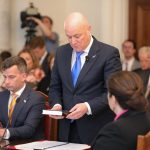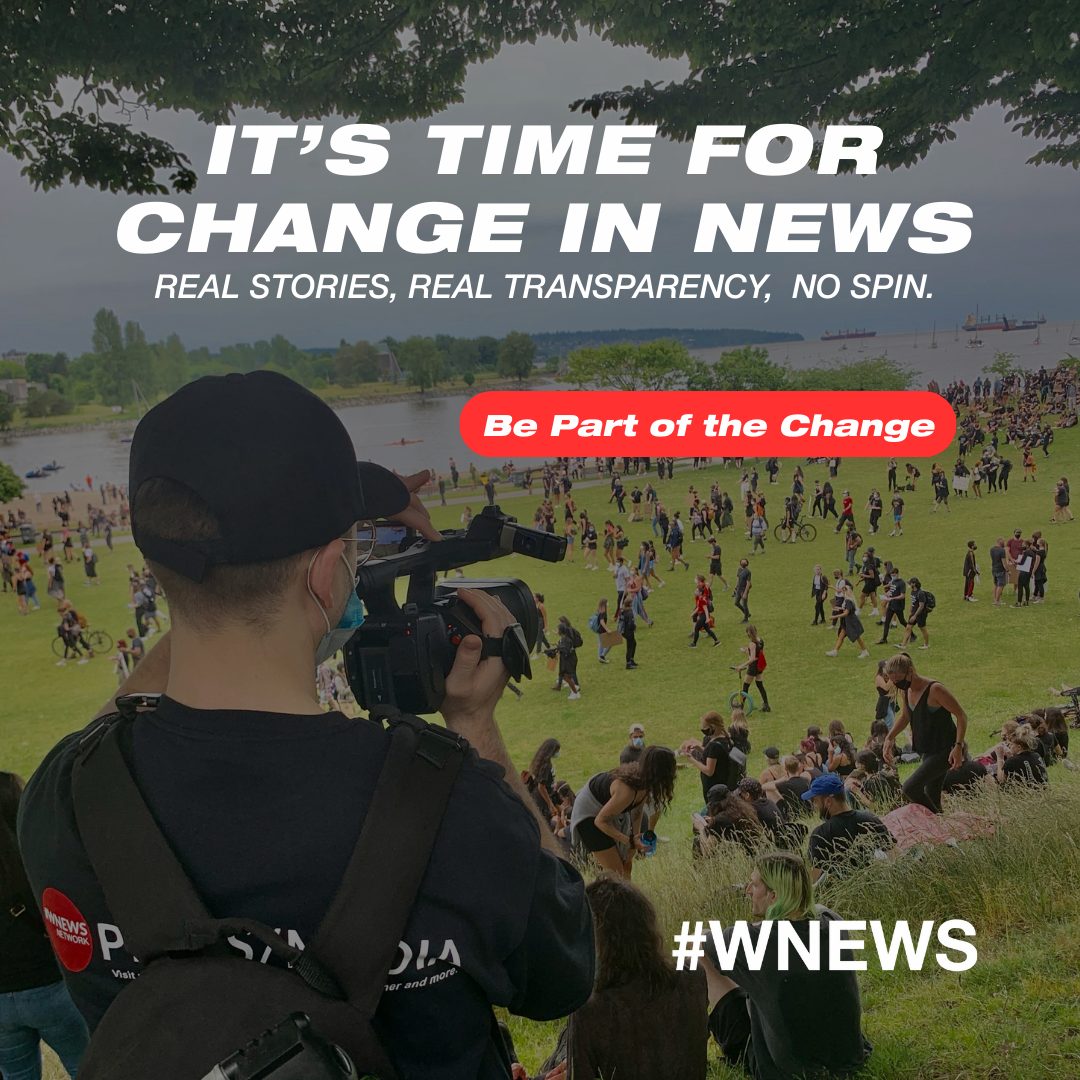Edmonton, AB, Canada (WNEWS CANADA) – Alberta Premier #DanielleSmith announced late Monday that her government will hold a referendum on the province’s separation from Canada in 2026, should a citizen-led petition garner sufficient support. This move comes amid escalating tensions with the federal government over energy policies and perceived encroachments on provincial autonomy.
Alberta’s Crossroads: Sovereignty or Separation?
In a televised address, Premier Smith emphasized her preference for a “sovereign Alberta within a united Canada,” but acknowledged the growing frustration among Albertans who feel marginalized by federal policies. “Should Ottawa continue to attack our province as they have done over the last decade, ultimately that will be for Albertans to decide,” she stated.
To facilitate the potential referendum, the United Conservative Party (#UCP) government introduced legislation lowering the threshold for citizen-initiated referendums. The proposed changes would reduce the required signatures from 20% to 10% of eligible voters and extend the collection period from 90 to 120 days.
Federal Policies Fueling Discontent
Premier Smith criticized successive #Liberal governments for implementing policies she claims have severely impacted Alberta’s economy, particularly the energy sector. She cited legislation such as Bill C-69, which overhauled the environmental assessment process for major projects, and the federal carbon tax as examples of Ottawa’s “anti-energy” stance.
“These policies have cost Albertans roughly half a trillion dollars in investment,” Smith asserted, highlighting the loss of jobs and opportunities in the province. She also expressed concerns over federal mandates for net-zero emissions, arguing they threaten the stability of Alberta’s power grid.
“Alberta Next” Initiative: Engaging Citizens
As part of the “#AlbertaNext” initiative, the provincial government plans to host a series of town halls to gather input from residents on the province’s future. Premier Smith emphasized the importance of listening to all voices, stating, “The vast majority of these individuals are not fringe voices to be marginalized or vilified. They are loyal Albertans.”
The initiative aims to foster dialogue on Alberta’s path forward, whether that involves seeking greater autonomy within Canada or pursuing separation.
Historical Context and Expert Opinions
Alberta’s push for greater autonomy is not unprecedented. In 2022, the province enacted the Alberta Sovereignty Within a United Canada Act, asserting its right to refuse enforcement of federal laws deemed harmful to provincial interests.
Political analysts suggest that the threat of separation may be a strategic move to leverage negotiations with Ottawa. John Soroski, a political scientist at MacEwan University, noted, “I don’t see Smith wants separation, but I think it’s very useful for the province to have in its back pocket the idea that there’s this large number of discontented Albertans,”
Opposition from First Nations’ Leaders
In response to Premier Danielle Smith’s announcement regarding a potential 2026 referendum on Alberta’s separation from Canada, several First Nations leaders have voiced strong opposition, citing concerns over treaty rights and the legal implications of such a move.
Chiefs from four Calgary-area First Nations, Tsuut’ina Nation, Bearspaw Nation, Chiniki Nation, and Goodstoney Nation, issued a joint statement expressing their unwavering opposition to any efforts toward Alberta’s separation. They emphasized that the lands in question are governed by sacred treaties between First Nations and the Imperial Crown, predating Alberta’s entry into Confederation in 1905. These treaties, they assert, are held in trust by the Crown for the benefit of the Treaty First Nations and are not the property of the provincial government.
Similarly, the Confederacy of Treaty 6 First Nations, last Wednesday, in an open letter to Premier Smith, accused Premier Smith of promoting the idea of a referendum on Alberta’s separation, labelling it as reckless and a violation of treaty agreements. They called for an immediate cessation of such rhetoric and urged recognition that treaty obligations are not optional.
The Federation of Sovereign Indigenous Nations (FSIN), representing 74 First Nations in Saskatchewan, also expressed serious concern over Premier Smith’s actions to facilitate a potential referendum. FSIN Chief Bobby Cameron stated that any process of separation failing to honour the true spirit and intent of treaties would violate both constitutional and international law.
These perspectives highlight the complex legal and constitutional challenges associated with any move toward Alberta’s separation, particularly concerning the rights and treaties of Indigenous peoples. The opposition from First Nations leaders underscores the importance of honouring existing agreements and the potential ramifications of unilateral provincial actions on Indigenous communities.
National Implications and Reactions
The announcement has sparked varied reactions across the country. While some view it as a legitimate expression of provincial rights, others express concern over the potential fragmentation of national unity. The federal government has yet to issue an official response.
As Alberta embarks on this critical juncture, the coming months will reveal whether the call for a referendum gains the necessary momentum and what it signifies for the future of the province within Canada.








